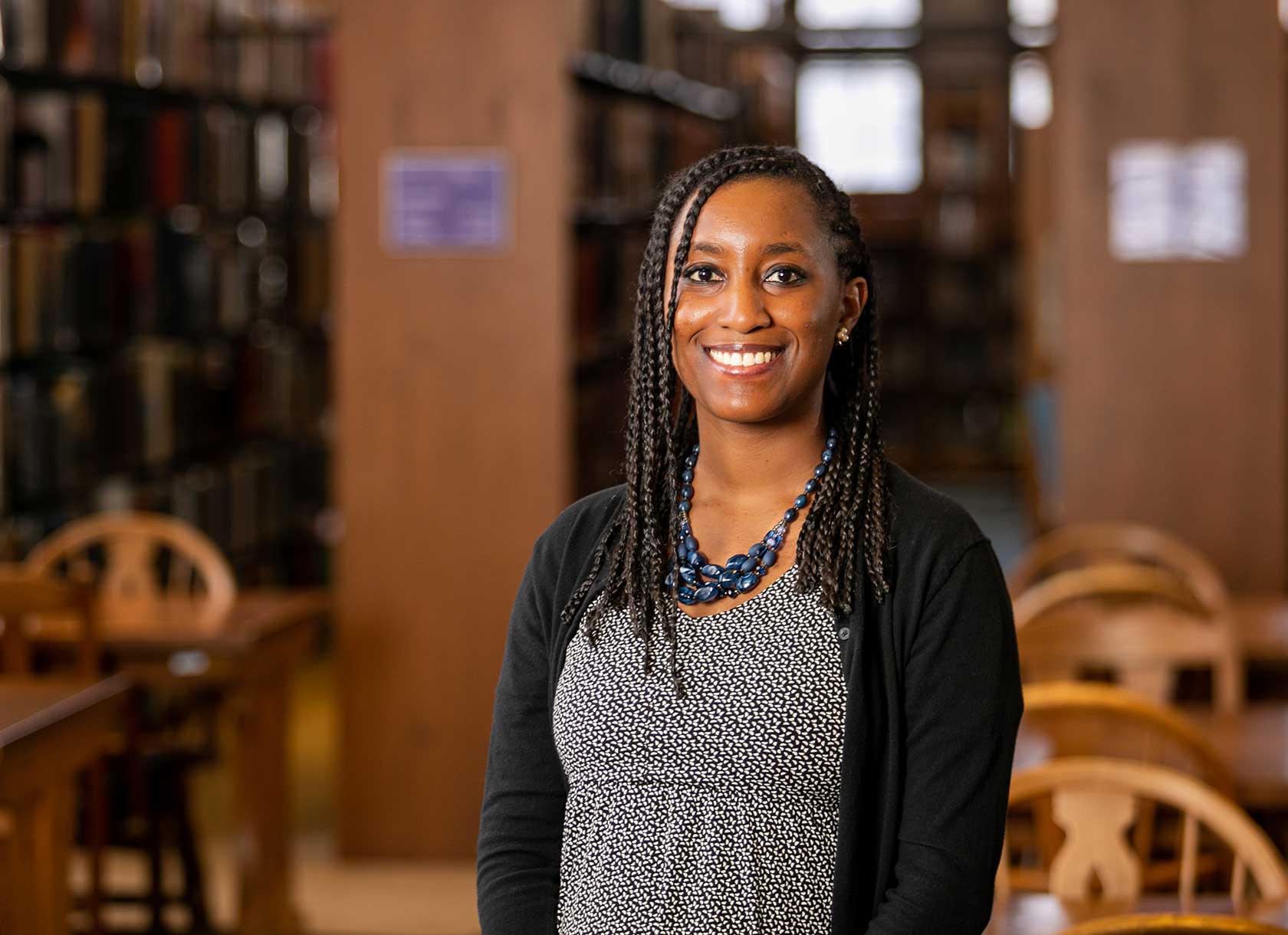By Katie Hanson ’25

While paging through historical readings at Denison Library as a student, Charla Wilson ’11 didn’t expect that this would become part of her career, especially in a college setting. Now, nearly a decade since she started as a student at Scripps College, Wilson serves as a librarian and archivist for the Black Experience at the Northwestern University Libraries. Wilson said her work there utilizes the same skills she mastered at Scripps.
“I loved my Scripps experience,” Wilson says. “In the work I do today, I constantly refer back to those foundational skills that I got from Scripps.”
Through her American studies major, Wilson was able to understand American culture through multiple lenses, examining music, film, literature, and history. She said she appreciated the interdisciplinary approach. Outside of the classroom, Wilson was active on campus, involved in groups like Watu Weusi, Intervarsity, and Scripps College Academy.
After graduation, Wilson briefly pursued a teaching career. However, realizing she wanted her career path to include the same interests she was able to explore at Scripps, Wilson pivoted and enrolled in a master’s degree program in history at California State University, San Marcos. She noted that the decision was difficult, but that her former Scripps professors guided her.
“They were very supportive and gave me some feedback on things that they thought that they saw in me. They said, ‘you may want to consider archives and the library field,’” Wilson says. “That was very helpful for me.”
Wilson’s graduate thesis examined the Young Women’s Christian Association of San Diego’s segregated chapter for African Americans from the 1920s through 1950s. While working on her thesis, she began realizing her passion for archival research.
“Grad school was really the first time I had worked with an archival collection,” Wilson says. “It was just a life-changing experience.”
Wilson also discovered her interest in uncovering and preserving African American history. She began her thesis after noticing a small detail in the archives, something she said she “just stumbled upon.” This discovery led Wilson to understand how under-documented African American history is, something she now works to unearth in her career.
“I became interested in looking at documenting African American history and Black communities so that we don’t have these hidden or forgotten histories,” Wilson says. “I wanted to have a part in building a career around safeguarding those accounts of African American history through archival records.”
Wilson’s current position came as a result of a student protest. In 2015, Northwestern students protested staff moving their offices to the “Black House,” an on-campus building that historically served as a student union for Black students. Their grievances echoed similar demands from nearly 50 years prior. In 1968, Black students at Northwestern occupied the bursar’s office in what is now termed the “Bursar’s Office Takeover.” Black students protested for more spaces and recognition, but they received the Black House instead.
In 2018, Wilson worked on an online exhibition to commemorate the 50th anniversary of the Bursar’s Office Takeover. Wilson’s research from the project was extensive. Aside from closely analyzing archival materials, she met firsthand with alumni involved in the protest. In doing so, she uncovered the influence of Kathryn Ogletree, a leader of the movement who had been largely excluded from the press because of her gender. Teaming up with the women’s center, Wilson brought Ogletree to campus to discuss her experience.
“Having the opportunity to record her story in her own words, to me, was just so, so meaningful,” Wilson says. “Her story reminds me of the importance of asking questions such as, ‘are there voices and perspectives that are missing that can aid in providing more insight into the past?’”
Just this winter, Wilson was recognized for her efforts to preserve history and create a more inclusive environment at Northwestern with the Daniel I. Linzer Award for Faculty Excellence in Diversity and Equity.
“What excites me as an archivist is building a collection that’s more representative of historically overlooked groups and providing researchers with access to information through primary sources that inform, and at times challenge or complicate our understanding of the past,” Wilson says. “In turn, those researchers can amplify more stories about events and individuals. I’m honored to contribute to that effort.”

